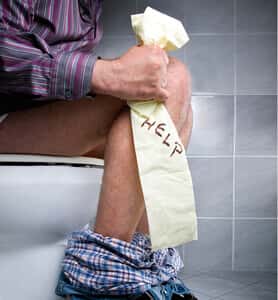
Q. A friend of mine almost died from C diff diarrhea that she developed after taking the antibiotic clindamycin. She had to be hospitalized for two weeks, and she had bad diarrhea at least 30 times a day.
She was scheduled for a stool transplant, but her husband got her into a clinical trial for a drug called Dificid. After two weeks on this antibiotic she recovered and has now been well for several years.
It seems to me that doctors don’t do a good job diagnosing and treating this problem. Shouldn’t doctors and dentists be more careful about prescribing clindamycin, considering the horrible effects of this infection?
A. C diff is shorthand for Clostridium difficile infections. When this bacteria takes over the colon, it can cause dreadful diarrhea that can be quite difficult to treat. Antibiotics such as clindamycin can kill off some of the normal intestinal flora and throw it out of balance, allowing C diff to dominate and wreak havoc.
Dificid (fidaxomicin) was approved in 2011 specifically for treating Clostridium difficile intestinal infections. Adverse reactions to this drug include nausea, vomiting, diarrhea, stomachache and headache. Another side effect is financial: a 10-day course of Dificid can cost over $3,000.
An alternate treatment is fecal transplant. A recent review found that a liquid suspension of stool from a healthy donor (administered by colonoscopy, enema or nasogastric tube) is a safe and effective method for treating C diff infections (Journal of Clinical Gastroenterology, online, Jan. 16, 2014).
We discussed this topic at length in an hour-long interview with a gastroenterologist who has pioneered this technique, Lawrence Brandt, MD, and a patient, Catherine Duff, who survived thanks to fecal transplant and started the Fecal Transplant Foundation. You can learn more and listen here.

